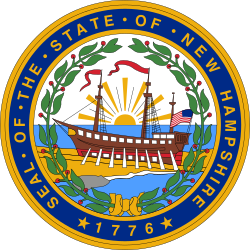This article needs additional citations for verification .(November 2025) |
| |||||||||||||||||||
29 Democratic National Convention delegates (22 pledged, 7 unpledged) The number of pledged delegates received is determined by the popular vote | |||||||||||||||||||
|---|---|---|---|---|---|---|---|---|---|---|---|---|---|---|---|---|---|---|---|
| |||||||||||||||||||
| |||||||||||||||||||
| Elections in New Hampshire |
|---|
 |
The 2000 New Hampshire Democratic presidential primary, was the second major test of the leading contenders for the Democratic Party's nomination as its candidate for the 2000 presidential election, took place on February 1, 2000.



